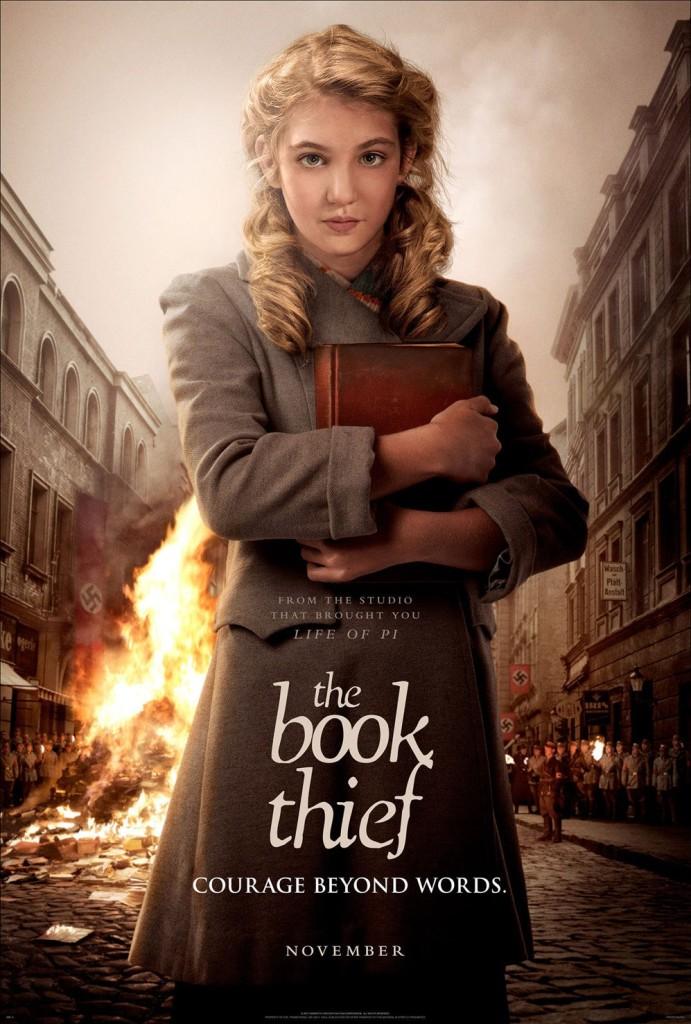Movie Review: ‘The Book Thief’
Does it live up to the book? We’ve all heard it; we’ve all asked it. And sadly, most of the time, the answer is no. But “The Book Thief” is one of those few movie adaptations that not only honors the plot of the book, but captures the essence, tone and emotions of the original work.
“The Book Thief” is the story of a girl, Liesel, in Nazi Germany. Abandoned by her mother, she travels to Munich with her brother to live with foster parents. On her journey, her brother dies and receives a lonely burial. Though she cannot read, Liesel steals the gravedigger’s handbook as a memento of her brother. She starts a new life on Himmel Street in Munich and grows to love her strict new mother, Rosa Hubberman (Emily Watson) and her amiable, accordion-playing new father, Hans Hubberman (Geoffrey Rush), who teaches her to read. She also forms a strong friendship with a boy named Rudy (Nico Liersch), who will do anything for a kiss. Her habit of stealing books – and reading them – continues throughout the movie.
Liesel, who is portrayed by Sophie Nélisse, does not fully comprehend the Nazis’ cruelty because she is young and innocent. But over time, she learns to understand the terrible state of humanity in Germany. When Rosa and Hans take in a sickly Jewish man, Max, Liesel learns about the Nazis’ barbarism, treachery and inhumanity.
Like the book, the movie captures the duality of human nature, displaying love in the most hateful of times and places. This coexistence is represented in the beginning of the film by a black train plodding through a snowy, almost blindingly white landscape. This kind of contrast, which can be seen in moments throughout the film, represents this duality. The Hubbermans’ kindness in taking in Liesel and Max sharply contrasts with the small German community’s proclamations of hatred towards Jews, Communists, blacks, and anyone who is “different”; the mercy of humanity challenges the unflinching advances of death. The strength of those who stand up to injustice exposes the weakness and mob mentality of the German communities during World War II. In The Book Thief, polar opposites coexist, and this juxtaposition of love and hate, knowledge and ignorance, and life and death is beautiful.
Furthermore, the German point of view in “The Book Thief” is not often explored. The film explains and dissects rather than excuses the actions of German communities in the time of the Holocaust. It introduces a grey area of people, like Hans Hubberman, who hide by assimilating into the Nazi community but, in secret, show love and mercy and provide refuge for the persecuted.
Finally, “The Book Thief” has an extremely novel narrator, Death (Roger Allam), which sets it a part from other films of this genre. The voice of Death opens the film, ends the film and drives the story. The narrator establishes a sense of fragility to the happiness in the film. Death gives the film a solemn foreboding mood, which makes the fate of the characters more precarious and less hopeful.
The Book Thief is a great movie. Prepare to laugh, smile, sob, and maybe even feel seething rage. I sincerely recommend it.



